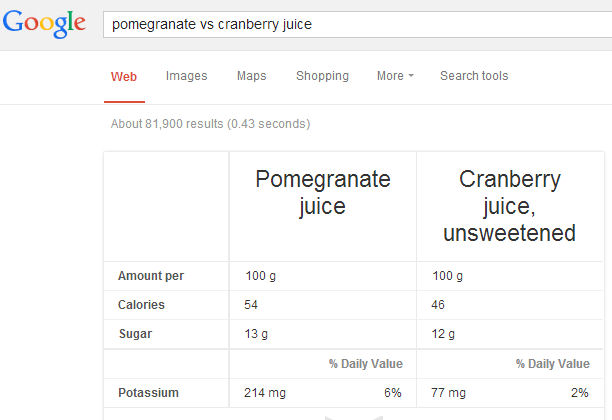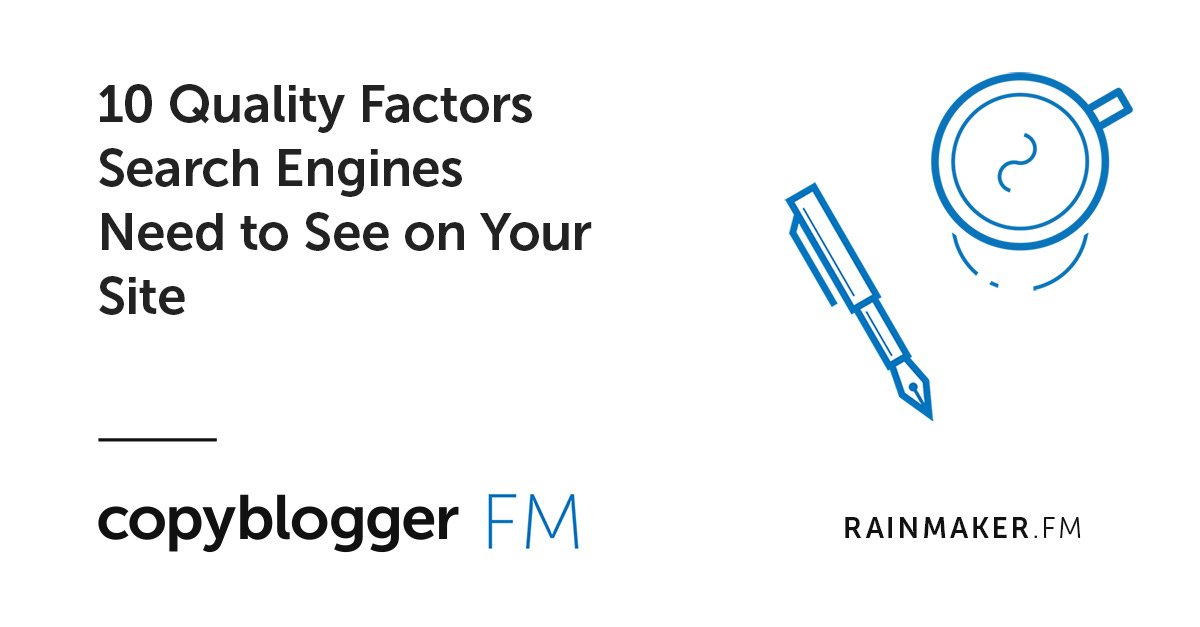
On October 3rd, 2013 Google announced a major search algorithm release called Hummingbird.
Uh-oh.
Does this mean your content-driven business is in jeopardy? Is keyword research dead? Are you going to have to reengineer your entire content strategy?
There’s no question that the Hummingbird algorithm is only the beginning of change in search optimization, but smart content creators can be prepared to thrive in this — and any — environment that may come in the future.
This release is basically a platform that enables Google to better handle “conversational” search queries.
To illustrate this, consider the difference between these two queries:
- “golden gate pictures”
- “give me some pictures of the golden gate bridge”

The first query is formed the way people have learned to enter entries using a keyboard. This has been our primary input method since web search was born.
Keyboards are not natural human devices, and even for fast typists they are a bit of an awkward device to use, so learning to abbreviate queries to talk to a search engine is a generally accepted practice.
However, the rise of mobile device usage brings some new challenges.
The mobile keyboard cometh
While many continue to type with the keyboards on phones and tablets, they are a bit more awkward to use.
Over time, people are going to increasingly gravitate to voice search in environments where that is acceptable (e.g. environments where speaking to your device is not seen as intrusive).
Voice queries are far more likely to fall into the pattern of the second query above — natural language queries.
As in all things search, Google wants to dominate mobile search too.
Google wants to process “real” speech patterns
Having the best platform for processing conversational queries is an important part of that, and that’s where Hummingbird fits in, though it’s just the beginning of a long process.
Think of Google’s Hummingbird algorithm as a two-year-old child. So far it’s learned a few very basic concepts.
These concepts represent building blocks, and it is now possible to teach it even more concepts going forward. It appears that a lot of this learning is derived from the rich array of information that Google has on all search queries done on the web, including the query sequences.
For example, consider the following query sequence, starting with the user asking “give me some pictures of the transamerica building”:

The user looks at these results, and then decides to ask the next question, “how tall is it”:

Note that the latter query recognizes the word “it” as referring to the Transamerica Building because that was identified in the prior query. This is part of the sophistication of natural language queries.
Another example is the notion of comparison queries. Consider the query “pomegranate vs cranberry juice”:

The Knowledge Graph
These examples involve Google’s Knowledge Graph, where natural language search benefits from the ability to pull real-time answers to queries that understand the specific context of the query.
Note that the Knowledge Graph has accepted some forms of conversational queries for a while, but a big part of Hummingbird was about expanding this capability to the rest of Google search.
I have seen people argue about whether or not Hummingbird was just a front end translator for search queries, or whether it is really about understanding more complex types of user intent.
The practical examples we have now may behave more like the former, but make no mistake that Google wants to be able to do the latter as well.
The mind reading algorithm
Google wants to understand what is on your mind, well, before its on your mind.
Consider Google Now as ultimately being part of this mix. Imagine being able to have Google address search queries like these:
- Where do I find someone that can install my surround sound system?
- What year did the Sox lose that one game playoff?
- What are the predictions for the price of gas next summer?
- What time is my dinner on Tuesday night, where is it, and how do I get there?
No, these queries will not work right now, but it gives you some idea of where this is all headed.
These all require quite a bit of semantic analysis, as well as pulling in additional information including your personal context.
The 4th question I added was to show that Google is not likely to care if the search is happening across web sites, in your address book, or both. Not all of this is Hummingbird, per se, but it is all part of the larger landscape.
To give you an idea on how long this has taken to build, Google’s Amit Singhal first filed a patent called Search queries improved based on query semantic information in March of 2003. In short, development of this technology has taken a very long time, and is a very big deal.
The implications of a Hummingbird search world
It is important to remember that this step forward being described by Google as a new platform.
Like the Caffeine release Google did in June of 2010, the real import of this is yet to come. Google will be able to implement many more capabilities in the future. The implications to search in the long term are potentially huge.
For you as a publisher, the implications are more straightforward. Here are a few things to think about:
1. Will keywords go away?
Not entirely. The language you use is a key part of a semantic analysis of your content.
Hopefully, you abandoned the idea of using the same phrases over and over again in your content a long time ago. It will remain wise to have a straightforward definition of what the page is about in the page title.
I’ll elaborate a bit more on this in point 3 below.
2. Will Google make the long tail of search go away?
Not really. Some of the aspects that trigger long tail type search results may actually be inferred by Google rather than contained in the query. Or they may be in the user’s query itself. Some long tail user queries may also get distilled down to a simpler head term.
There will definitely be shifts here, but the exact path this will take is hard to project. In the long term though, the long tail will be defined by long tail human desires and needs, not keyword strings.
The language you use still matters, because it helps you communicate to users and Google what needs and desires you answer.
3. You need to understand your prospect’s possible intents
That is what Google is trying to do. They are trying to understand the human need, and provide that person with what they need.
Over time, users will be retrained to avoid short simple keyword-ese type queries and just say what they want. Note that this evolution is not likely to be rapid, as Google still has a long way to go still!
As a publisher, you should focus more attention on building pages for each of the different basic needs and intentions of the potential customers for your products and services. Start mapping those needs and use cases and design your site’s architecture, content, and use of language to address those.
In other words, know your audience. Doing this really well takes work, but it starts with knowing your potential customers or clients and why they might buy what you have to sell, and identifying the information they need first.
4. Semantic relevance is the new king
We used to speak about content being king, and that in some sense is still true, but it is becoming more complex than that now.
You now need to think about content that truly addresses specific wants and needs. Does your content communicate relevance to a specific want or need?
In addition, you can’t overlook the need to communicate your overall authority in a specific topic area. Do you answer the need better than anyone else?
While much of being seen as an authority involves other signals such as links, and perhaps some weight related to social shares and interaction, it also involves creating in-depth content that does more than scratch the surface of a need.
Are you more in-depth than anyone else? If someone has some very specific scenarios for using your product or service, does your content communicate that you address it? Does your content really stand out in some way?
What’s it to you?
As noted above, this is going to be a journey for all of us.
While Google’s eventual destination is easy to imagine (think Star Trek’s on board computer), Hummingbird has only scratched the surface, and the steps along the way are hard to predict. That will be driven by very specific developments in technology.
For you, as an author, blogger, publisher though, your path is reasonably clear as well. Focus on becoming the recognized authority in your space.
Thanks to Bill Slawski of Go Fish Digital for input on some of the specifics of this article (note that all the speculations are mine, not Bill’s :)).


![[08] 10 Goals that Make Content Marketing Meaningful](../../rainmaker.fm/wp-content/uploads/2017/07/sites-008.jpg)


“As in all things search, Google wants to dominate mobile search too.”
And I think that is a huge factor on why Hummingbird was created. People who use voice search will search like they talk, which means Google needs to understand what people mean outside of a few select keywords. If they don’t deliver a great product they risk losing search share to other search engines.
I feel the same too, however, I think Google could become evil if they decide to make these updates private.
Imagine, next year, Google won’t tell what they’re up to. We’d have to guess, by reverse-engineering the top 10 SERPs.
Do you think that’s possible? Since they already make most keywords “not provided”… would it be that hard for them to make these algo updates “not provided”?
The algo updates are already “not provided.” They don’t tell us everything other than the basics, that’s why people have to observe and figure it out. 😉
John, if Google published its algorithm, what would happen? Use your brain. The whole reason to update the algorithm in the first place is to stay a step ahead of all the spam, and all the SEO idiots trying to trick the system. Don’t worry about “rankings” and instead worry about providing users with the best content possible.
Yep – Hummingbird was definitely created to prepare for the increase in voice searchers. Before Hummingbird I was getting pretty irrelevant results by asking Google things in the way I speak. Now the results are much improved.
And we can all learn from Google. Keep on growing to serve your customers. You may not be the only one, but create in your customers the belief that you are the ONE they need.
Very well-explained post Eric! A whole industry had grown up around how to search effectively using words search engines would understand. Its interesting how that will now back-evolve (totally made-up term alert) as it were!
What’s great to note though is that content creators need to focus on solving real problems with basic SEO knowledge in the backdrop. Thanks for the awesome examples whixh effectively illustrated how things work now and may work in the future.
Awesome explicit post Eric! However, I’d like to ask: outside of search, how do you see the increasing complexity of Google’s semantic processing capabilities affecting the way that content is being both located AND consumed? I know it’s a bit off topic but it’s one of the questions that just bu bubbled up to the surface of my mind!
Daryl – over time I picture people becoming used to using natural language queries. The big piece that intersects with this is the use of voice search.
Keyboards are lousy input devices. They have just been the what we have had. But voice processing continues to improve, and will eventually become a preferred way of interacting with the computer.
One of the reasons Hummingbird was created is that it is a first step in getting ready for this.
For content creators, that is a great question! I think it will push us more towards identifying and speaking to human wants and needs. I now that can be seen as a vague statement, but the people who are able to execute well on it will do very well I think!
Eric, I think that is a valid point that voice processing is the way of the future. It does seem as though the Hummingbird update has us headed in that direction.
One thing worth noticing is that Google is not putting more emphasis on Google Knowledge graph while taking the data from users through Android, Chrome and Google now.
There was a post I read few months back on how small the share is for organic results as a major portion is occupied by Image carousel, Knowledge Graph, Paid Ads and Maps.
The key is to invest in content marketing and answering questions of the people rather than fighting for keyword ranking.
Very, very informative post . I find Google’s updates quite interesting and feel they are trying their best to better their search. The potential of Google Now is amazing , however they do have to take care of the privacy concerns.
Well written Eric! This update merely forces us to bump up our game. Better serve your target audience by creating content around their needs. Think of your ideal reader or user and create.
Rather than complain bloggers should be grateful that Google is raising web credibility. This benefits everybody.
Ryan
I’m a little fuzzy on what it means to create content that will do well given Hummingbird/semantic search. Especially as it seems like simultaneously, Google is giving us less and less data about how people are finding us.
I will say that I’ve benefited enormously from hummingbird – up ~30% over the past few months? Which is excellent. But also slightly concerning as I’m not entirely sure what I’ve been doing well and thus should continue to do?
It means write for humans, as always. Google still provides all the data you need via query aggregation (aka keyword search volume accessible by keyword research). That’s the language of your audience, even as it evolves into more natural speech patterns due to voice search.
As Brian says, write for humans is the mission. The subtleties of this process relate to how well you understand what your potential users would be interested in.
Do whatever it takes to figure that out! And, by the way, as they tell you want they want and need, they will be giving you the ideas on things to write about!
Hasn’t this always been our advice to clients though… “write for humans”? I think Google is just finally (and very slowly) actually launching algo updates that enforce (to a greater extent) what has always been said in webmaster guidelines…
Eric, this is a great explanation. Thank you for that. I think the changes are for the better. Focusing on keywords has always made content creation feel a bit forced. You have a great idea you want to get out, but you also want it to be easily found by Google… This will allow content creators to just focus on getting their information out there.
Nice post Eric; thanks! Eventually the productivity possibilities of voice recognition and apps will allow all of us to have the equivalent of a personal stenographer at our beck and call.
The Google hummingbird algo update is an encouraging tech advance for those of us who are lousy typists and/or old-enough to remember those semi-ubiquitous, little dictation recorders–only sans the transcribing process to convert the voice stream to useable data.
The keyboard entry point has always seemed like a return to the days of the telegraph. I’m looking forward to the seamless ability to dictate writing–such as a blog post–while interjecting aside commands to Google…like, “Google: verify those event details and that date please.”
Google will then interject and ask me, “Steve, I’ve verified that information about [subject] and inserted the details into your story, marked for your review…” etc etc.
Better, seamless applications–real Jetsens-like stuff (I said I was old)–is just around the corner. Do you see that kind of application developing anytime soon?
Very interesting! After reading this, I picked up my phone and did my first voice search for “Google’s Hummingbird algorithm.” Then I tried a longer query: “I want to know about Google’s Hummingbird algorithm” and got pretty much the same results. I suspect there are going to be some keyword stuffers trying to grab those more long winded longtail keywords, but in the end, quality content will win out, as it should.
This latest algorithm update points to the convergence of SEO and user experience and means improved usability for users. My own post from this morning addresses this angle: http://onlineamplify.com/2013/10/21/googles-search-algorithm-humminghird-seo-meets-user-experience/
While some experts are claiming that Hummingbird wasn’t that impactful to search, your query sequence example proves its impact. Amazing. Keep the great content coming.
Eric, great post!
I say to my clients, “Step into the shoes of your clients and customers as they search online. Think about the words and phrases they use. Think about the problem they have that needs solving.” It may sound like you have to be a mind reader, but Google Hummingbird will force you to know your audience inside and out so you can write for them. Tell a story and invoke emotion. Become the “go-to” company, coach, mentor, or speaker.
Eric,
Great post, thanks for writing it.
Thinking about the increase in voice search capabilities as mobile becomes the primary device for information consumption has my mind spinning. We are just on the cusp of integrating the mobile web as part of our regular set of services and then the Hummingbird algorithm comes along.
I think it will take a year or two for the mass market to understand what this means but for us marketers, this is an opportunity to dive in and figure out how to improve the work we do for ourselves and for our clients.
Improved intent and relevance are the keywords I take away from this. No pun intended.
Cheers.
Like Brian says, write for humans. Like Eric says deliver value and like I say, Create a G+ Community (Private Forum) and if your content is really good, they will stay in Community and if your content is REALLY REALLY good, they will tell their friends.
Hi Eric,
Thanks for the details!
Curious what your thoughts are regarding post length? Considering that you now need to think about content that truly addresses specific wants and needs.
If you want to become the recognized authority in your space (and be more in-depth than anyone else) wouldn’t it make sense to focus on content rich, pillar posts (1000 + words) that go deep?
Craig – the post length should fit the topic. There is an entire sequence of things you need to learn about how to slice articles into different topics, best way to structure them, etc. That kind of quality content is all over this site – Copyblogger.
But, ultimately, make the content length fit an appropriate level of treatment for the topic!
Every time Google makes changes, content writers seem to panic. I used to be one of those but I no longer care what Google does since I try to follow Copyblogger’s first rule of providing quality content for my readers.
Although I still try to make the most of my keywords, I feel that whatever Google does is beyond my control so other than coming in here; I don’t even try to keep up anymore.
Thanks for sharing with us Eric!
Thanks Eric… so “best blue widget in anytyown, and we sell all kinds of blue widgets best, and have a great selection of blue widgets that are best for you in our best blue widget store” won’t work for me anymore? ack! I have to write for humans? 😉
Ah yes, the pain of having to think!
Eric, thanks so much for such an informative article – it’s the best I’ve read yet on Hummingbird. As a copywriter with a DM background from the pre-digital age, quality content has always been my mission. Understanding the target audience, using the right tone of voice, addressing their needs, clearly communicating benefits of the product or service, a succinct call to action – all ‘old-school’ stuff, but it works. Over the years I’ve stuck to it, politely ignoring SEO experts insisting on keyword-loading the content. If it didn’t sound natural, it didn’t make my final draft. So now Hummingbird takes search to a more human, conversational level – hooray! For mobile or computers, it’s a vast step forward. Thanks again for your great insights.
Fantastic article. Hummingbird is just the beginning of a new era of what’s to come from Google. I’m excited. If you’re already doing things naturally and focusing on quality, there’s nothing to worry about.
Great tips, thanks so much. Eric, I have to ask you–are you an STP fan? Stone Temple Consulting…
Actually, the name comes more from my passion for ancient stone temples, hence the logo!
Very detailed and informative article on Google Hummingbird. Now, I easily understand where Google is going with this update. I will follow your advice and others and make sure I am writing for humans.
Sorry Brian and Eric, but how are scraped results good news for content creators? All examples shown above do NOT benefit content creators. The user stays on Google and gets scraped or stolen content served right there be it images or information taken from third party sites.
You can make that argument for Knowledge Graph results, though that uses information which is all only public domain knowledge.
While I used mostly Knowledge Graph related examples above, Hummingbird relates to much more than that. It is understanding user intents that is the key for content creators.
I think your example could’ve been much clearer if you compared
“Golden gate photo” vs “what does the golden bridge look like” (which doesn’t even have the word photo/picture.
Thanks
Great post, I am happy that content moves to center stage. It will mean better work and levels the SEO playing field so it seems. I guess a little time will tell with that part of it.
Really great post Eric. Thanks for providing us with a good explanation of “The Hummingbird Update”. But my thoughts are this. It will be a long time before Google algo will really be able to distinguish between what I really want and what it thinks I want. This would include voice word recognition.
How can any program distinguish or calculate the following search query “What is the hummingbird?” The bird itself or the Algorithm? There are hundreds of others but this is the first one that popped into my head.
As it stands now the query brings up mostly the definition of a hummingbird…but there are a few listings of “hummingbird Algorithm”?
The searcher still has some obligation to be specific. Just like when speaking to humans. 😉
Good stuff. Discerning the user’s intent via big data should be a great customer experience. Someday. . .
(I envision “Greg, you really mean ‘dog bite attorneys in Omaha’, don’t you? Sitting there. . . in your chair, on your Mac. . . eating a pop-tart”)
Something related to content creation that I’ve been curious about – do you think that going to a “spoken word” content creator would help with the natural speech/semantic speech aspect of Hummingbird.
I’m just thinking the way I write versus the way I speak (or when I use software such as dragon naturally speaking) differs. Not greatly, but it is different nonetheless.
Not sure if speaking software would affect or make content better for hummingbird or not, just something I’ve been thinking of since it’s release.
Brian
I think the key is to focus on the potential user intents just as Google does. I think Google is simply trying to translate the spoken word into that intent. So it may indeed be helpful to understand how the spoken word relates to specific user intents. But, I suspect that is no small task!
Great post Eric! I think the fear that comes from the algorithm updates is that it forces us to do our jobs better and we have to get out of our comfort zone of tracking whatever we’ve been tracking since the last change.
Keyword data has become almost a crutch for a lot of content marketers and as much as I panic with each change, it ultimately simplifies the way to look at things – just write for humans!
Great article. I think we are always worrying about SEO and how to do it better so much so that we tend to lose sight of the bigger picture. I think this type of search is fascinating and look forward to Google’s work in this area in future.
Great overview. definitely this will change the search and keywords patterns over the tips. But I still think not everyone will be changing their search and will continue to use the keywords.
I will be interested in researching on what are the implications for SEO? What do we do about this? we need to carefully consider what users are actually looking for.
Wow. Great detailed analysis. I think what you’ve written is spot on and is great news for all the people out there creating meaningful content that people actually use.
Now this is an awesome article and so far the best one I read about the Hummingbird saga. Though you have done a detailed analysis and came up with valid points, I don’t think these things are not going to happen in a vast majority in any time soon. But the search is evolving day by day.
Hi Eric,
FWIW, I can’t reproduce those queries in google.com.au, so this might still be only valid for google.com. Even for the latter, while the query “give me some pictures of the golden gate bridge” brings up the set of images, the subsequent “how tall is it?” query only brings up an old fashioned SERP with some pages that address everything other than the GG bridge.
Searching on Google is much easier and faster now, that brings specific results on your specific query. I really like this new algorithm of Google! 😀
It’s hard to not scale down the content when you’re gearing a site towards mobile users. On the one hand, textual content is essential for getting those long-tail keywords. But on the other hand, I agree that most mobile users don’t want to read as much – they want to click and find what they’re looking for quickly because they’re on the go.
Has Google ever released a breakdown of how many searches are voice activated?
Good blog BTW.
I don’t think they have, but I would love to see it if they do!
Big G wants to dominate mobile search? I bet they have already, they just want to hold tight to it just like PC/laptop search!!
Google has not released page rank even up till now, they are discarding off some free tools……and with the arrival of hummingbird…..the goal is to simply dominate all aspect of IT…from manufacturing of PC, mobile phones, data analysis, mobile search e.t.c. They are just in for the money and want to monopolise the market.
Thanks for a great article. I still somehow feel that there’s more to these google updates than just quality. There are some blogs with quality and unique content that have suffered a drop in traffic as well. At the end of the day Google want to maintain their control of the search market and they seem to want to achieve that by rewarding brands rather the common man in the street, the so called authorities on various topics. They should just let the public decide what they consider authority sites through their repeat visits and shares as before.
First a use as same as you, ask the google “give me some picture of transamerica building” and then I ask “how tall is it” but the result is irrelevant from the first query.
Hummingbird hit some of the sites I am working on but i do agree that this algorithm is the one which you cannot fool around with or manipulate. i am sure the quality will win and so the ones who do not change will perish like i did. thanks.
When I was a newbie I used to type in natural long search phrases. Then over the years I got accustomed to typing short words to get more accurate search results. Now that I have learnt it they have again changed the whole game. I just don’t understand what does Google actually want to do with search and what do they intend to do with the average joe user!
Eric, this is the best post on the Hummingbird Update, Semantic Search and forecasting the emerging search trends that I have seen to date! (And I’m telling my Tweeps RIGHT NOW!
I agree with you that the better Google gets with semantics and predictive filters the higher the bar will get for content writers. But – YES – this is good news because it drives a fatter wedge between crap and quality! Sure, it’s a bit tough to anticipate how exactly the search engines will achieve their lofty goals for “relevant results”, and impossible to guess at the timeline for development. But Google has demonstrated that this train ain’t turning back! We’ll be seeing a steady increase in the intelligence of those algorithms, and in the growing futility of playing games to outsmart the engines with sub-par content.
Yep; great post, Eric.
Thanks!
Oh wow! Great write indeed.
The article touched a few (excellent as a matter of fact) good points on Hummingbird. Love the semantic thingy!
Keep it up and thanks for sharing.
~Reginald
I’m definitely beginning to see the gap narrow between optimised and non-optimised websites. I think this is because website owners who don’t think ‘optimisation’ write much more naturally and much more as you would talk about it rather than write it.
However, does this necessarily mean the results are going to be more relevant? I know some really informative websites written by leading experts that are getting incredibly low search positions with poorly written websites that are often factually incorrect ranking above them. Now if Google could come up with an update that could detect factual errors that would be a real advance.
Impressive update. I think it’ll be better because in a way it’ll be easier to write content without trying to “insert keyword phrase here.” Sometimes keyword writing can feel a bit forced IMO.
I like the hummingbird update. It helps those find exactly what they are looking for. This update will help do away with “shady” SEO.
Hi Eric!
I like so much this article. I had traslated it to my spanish readers (with your authority and a backlink, for sure!). Hope you like it, you can read it here:
http://www.redeseo.com/por-que-es-una-buena-noticia-para-los-autenticos-creadores-de-contenido-el-nuevo-algoritmo-de-google-hummingbird-por-eric-enge/
Thank you very much, Eric. I´ll read other previous articles 😉
This is definitely going to help point search queries in the right direction, especially if follow-up releases continue to build on what Hummingbird has started. Thanks for this very thorough post, Eric!
This had been on the cards for a while, it was only a matter of time before it was actioned.
It is a good thing and has cleaned up a lot of the web. Unfortunately it isn’t fool proof and some great sites also suffer unnecessarily.